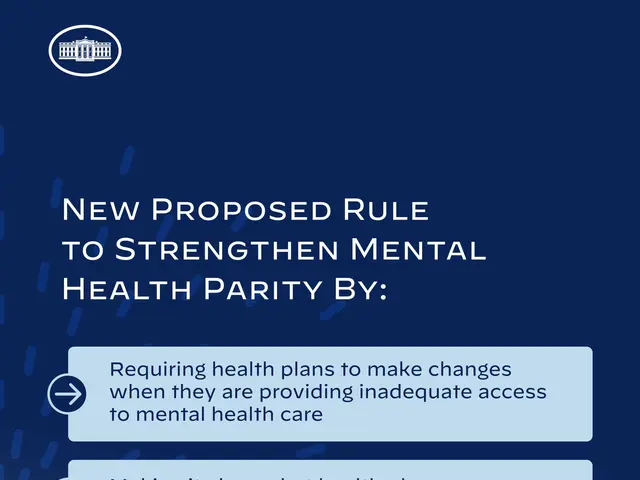Work environment alcohol consumption contributes to anxiety, prompting employers to explore healthier strategies
In today's fast-paced business world, the importance of employee well-being and team connection cannot be overstated. Sky News findings have highlighted that bonding and stress relief do not require alcohol, and companies are starting to take notice.
Instant Offices is leading the charge, encouraging businesses to build inclusive, alcohol-free environments. This shift towards more supportive and sustainable workplaces is becoming necessary due to increasing stress and burnout, with workplace stress having increased by 41% and burnout rising by 20%.
By creating such environments, companies can address the issue of nearly two-thirds of UK employees drinking to cope with work-related stress. Linking stress relief to alcohol reinforces unhealthy habits and undermines well-being efforts. Drinking to cope can worsen anxiety, stress, and other mental health issues, and it can alienate employees who abstain due to religion, health, personal values, or recovery.
So, how can companies create these inclusive, alcohol-free environments? Here are some key strategies:
- Providing diverse beverage options: Offering a variety of non-alcoholic drinks ensures everyone feels included. This could include alcohol-free beers, botanical spirits, and zero-alcohol wines.
- Establishing clear alcohol policies: Develop and communicate explicit alcohol policies that clarify when and where alcohol is permitted, if at all, and emphasize that drinking is always optional and without pressure.
- Promoting health and well-being events: Host health promotion events featuring educational opportunities, speakers, and vendors focused on healthy lifestyles without an alcohol emphasis.
- Encouraging stress management and mental health initiatives: Supporting employee mental health through stress management programs, regular breaks, and open dialogue reduces reliance on alcohol as a coping mechanism.
- Reducing stigma and fostering support: Creating an environment that normalizes conversations about alcohol misuse and supports individuals struggling with it reduces stigma and encourages employees to seek help.
- Offering peer assistance and training: Educate managers and employees to recognize signs of alcohol misuse and provide confidential peer intervention to help affected coworkers access support programs such as Employee Assistance Programs (EAPs).
- Reframing social events: Substitute alcohol at workplace gatherings with alcohol-free options to send a message of inclusivity and sensitivity; design social interactions around activities rather than drinking.
- Providing safe transportation: For occasions where alcohol is served, ensure reliable transportation options so employees can avoid risky behavior.
By implementing these measures, companies foster a culture of choice and inclusion, promote healthier lifestyles, and facilitate strong team connections without relying on alcohol as a social lubricant. This approach benefits employee well-being and morale while reducing absenteeism and turnover linked to alcohol misuse.
The statement "Fun does not require a hangover" highlights the importance of creating an inclusive work environment. Offering alcohol-free options can eliminate uncomfortable conversations about not drinking, making it easier for everyone to enjoy social events.
In conclusion, by adopting a combination of thoughtful policies, education, and alternative social practices, companies can create inclusive, alcohol-free environments that support employee well-being and team connection, promoting healthier coping mechanisms and fostering a positive, supportive workplace culture.
- In the pursuit of mental health and well-being, companies can foster an inclusive culture by providing diverse non-alcoholic beverage options, such as alcohol-free beers, botanical spirits, and zero-alcohol wines.
- A proactive approach to addressing mental health and well-being in the workplace involves clear alcohol policies that clarify when and where alcohol consumption is permitted, with an emphasis on choices that promote health and well-being.
- To foster positive mental health and team connection, companies can prioritize health and well-being events and programs, reducing reliance on alcohol as a coping mechanism while supporting employee mental health and promoting a culture of inclusivity.




